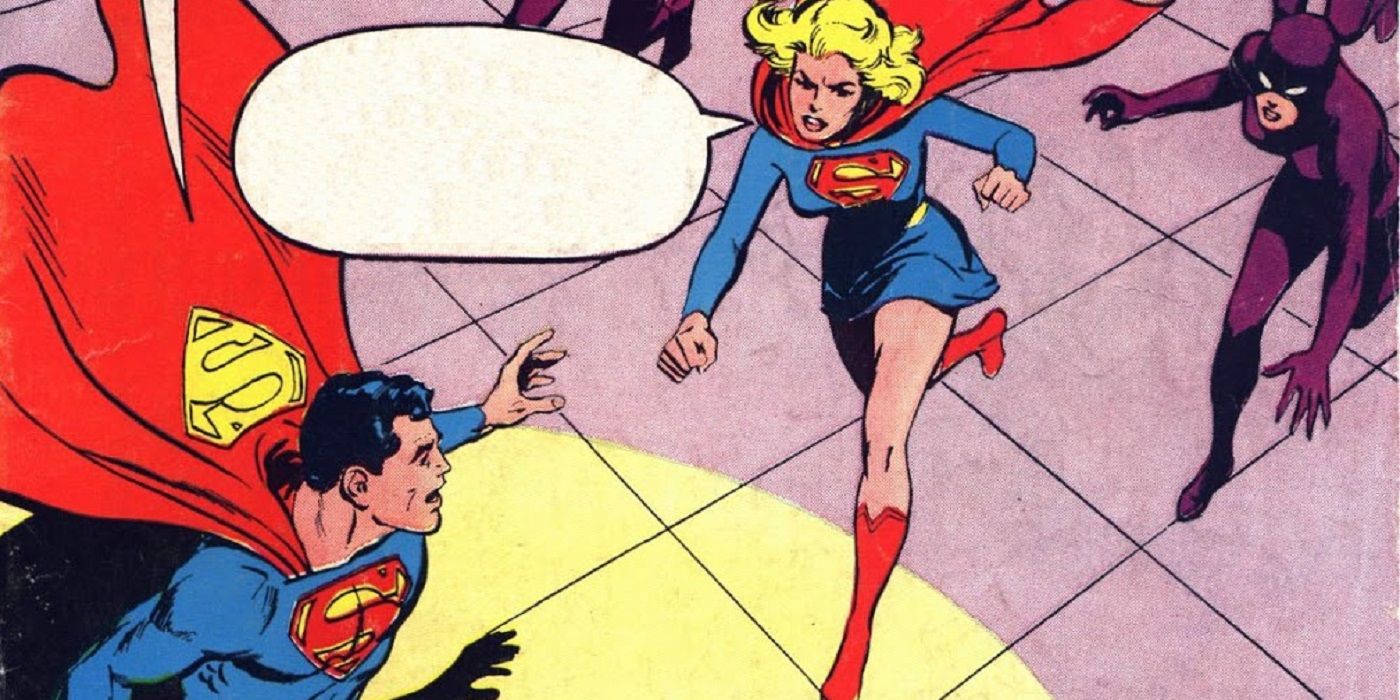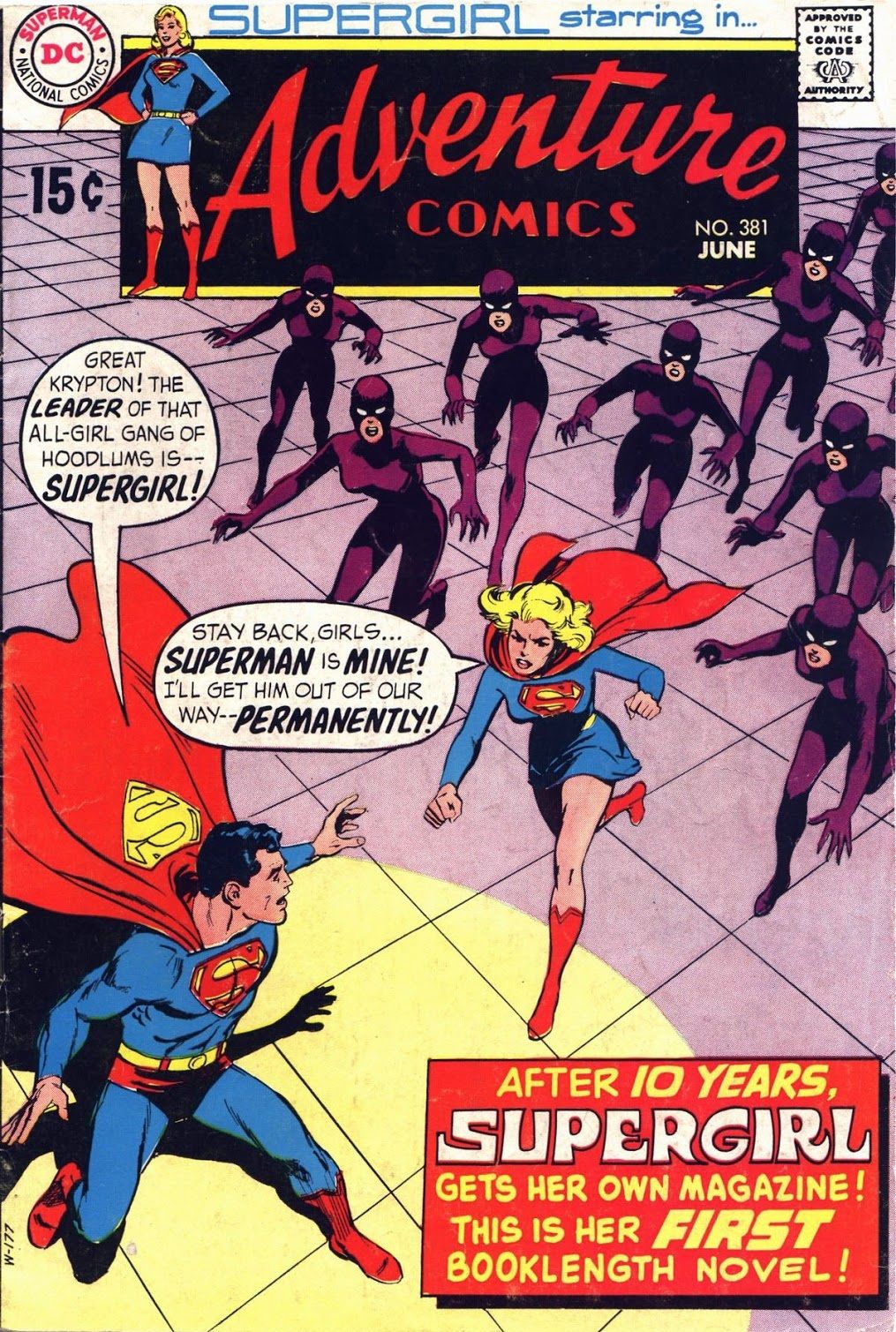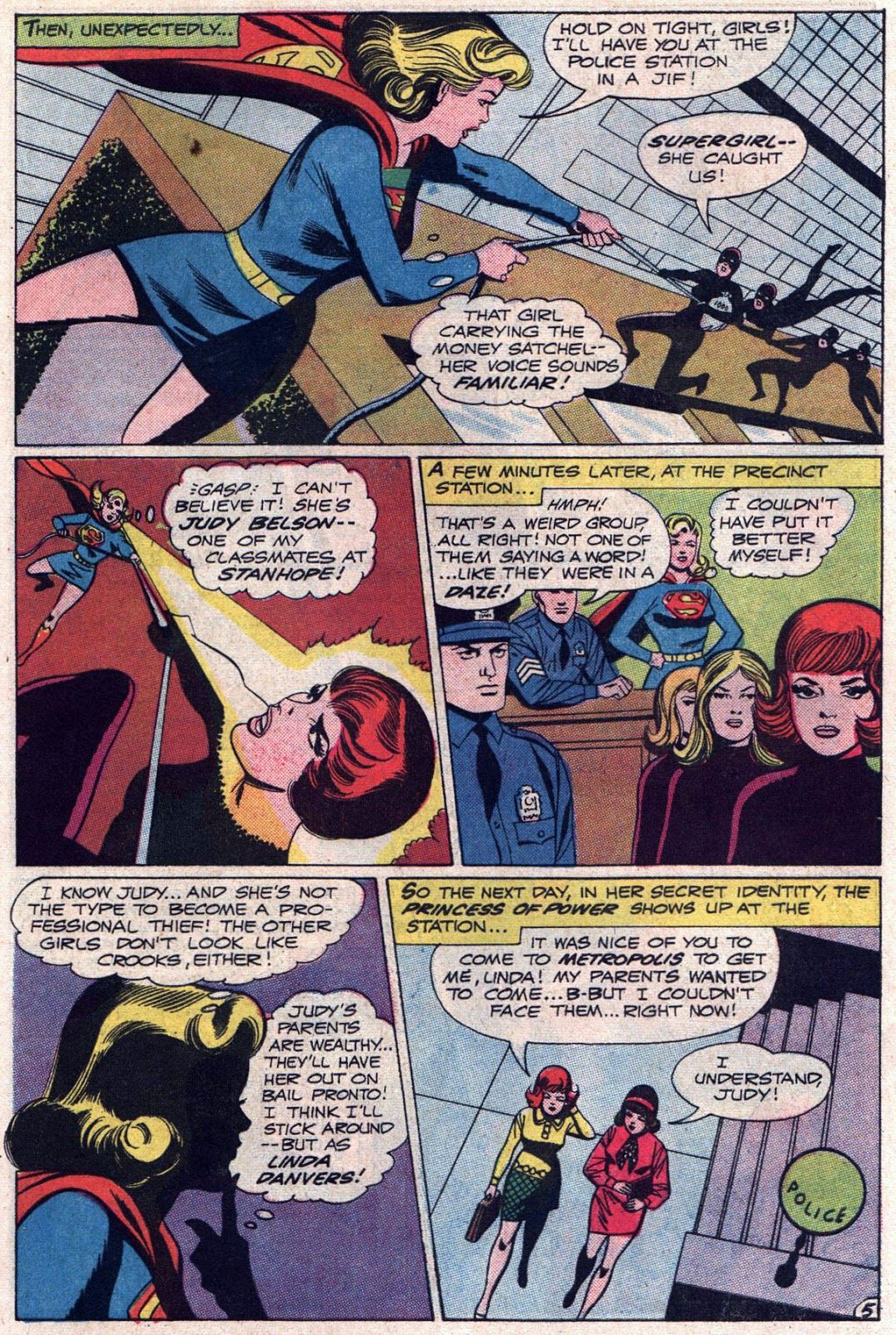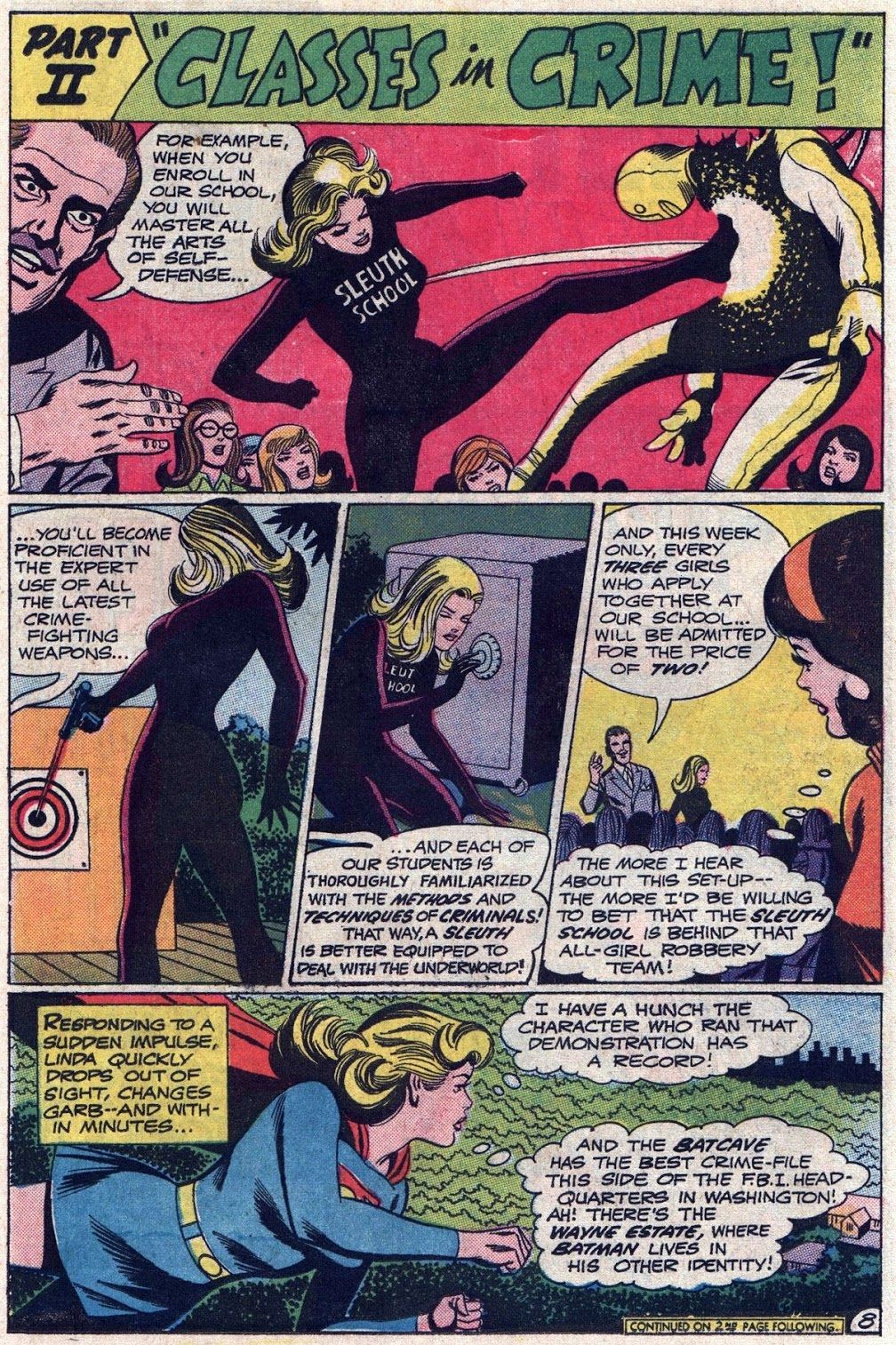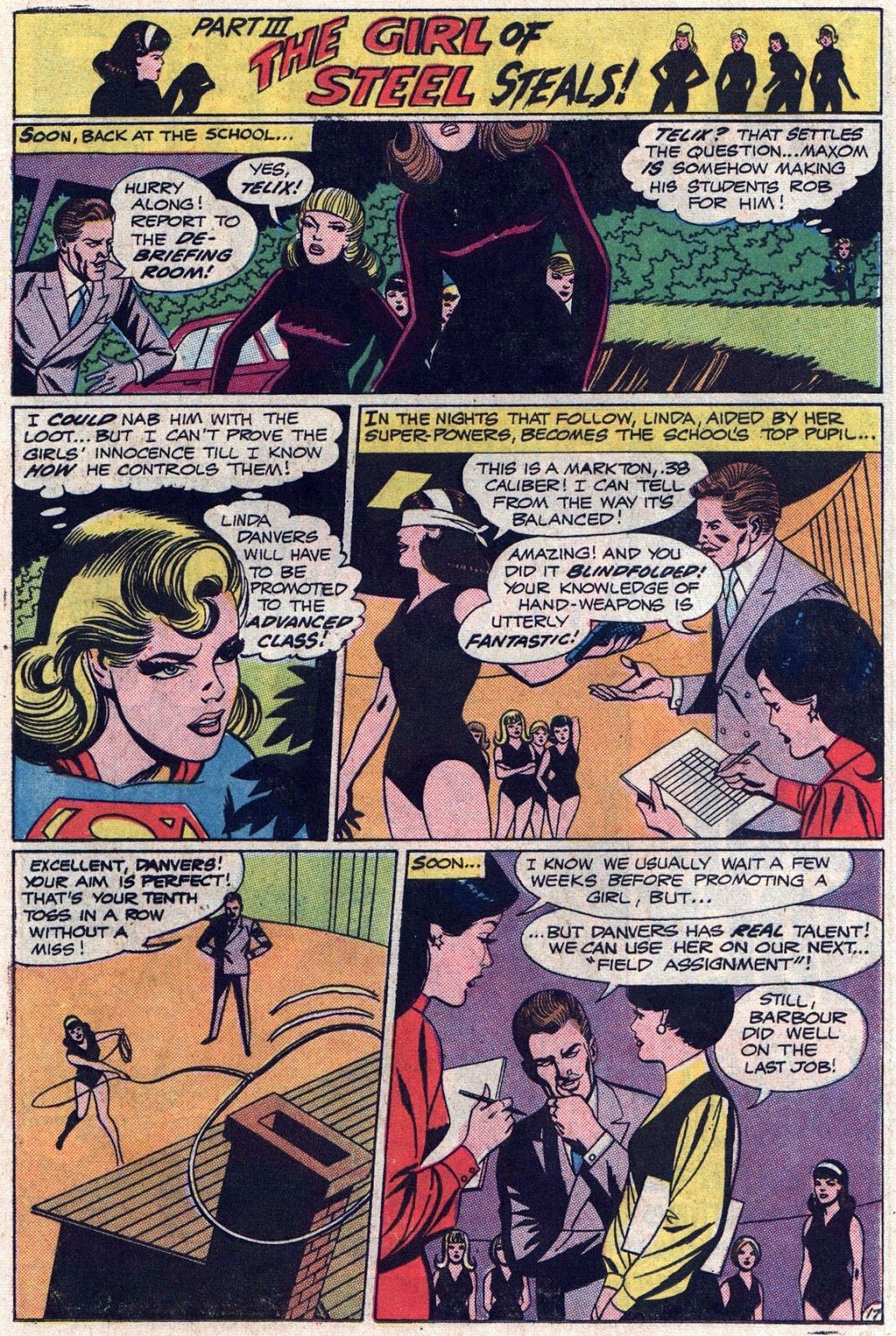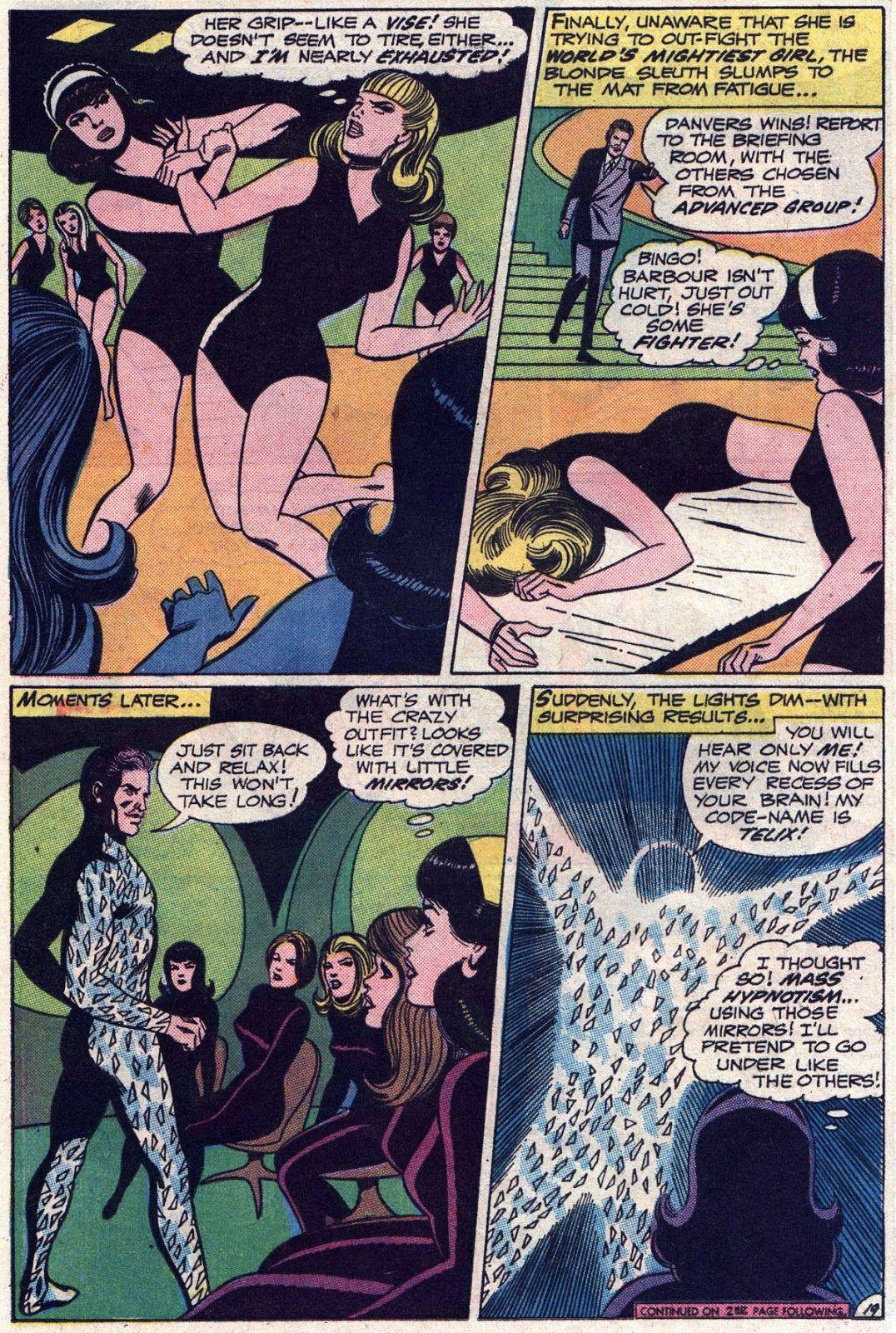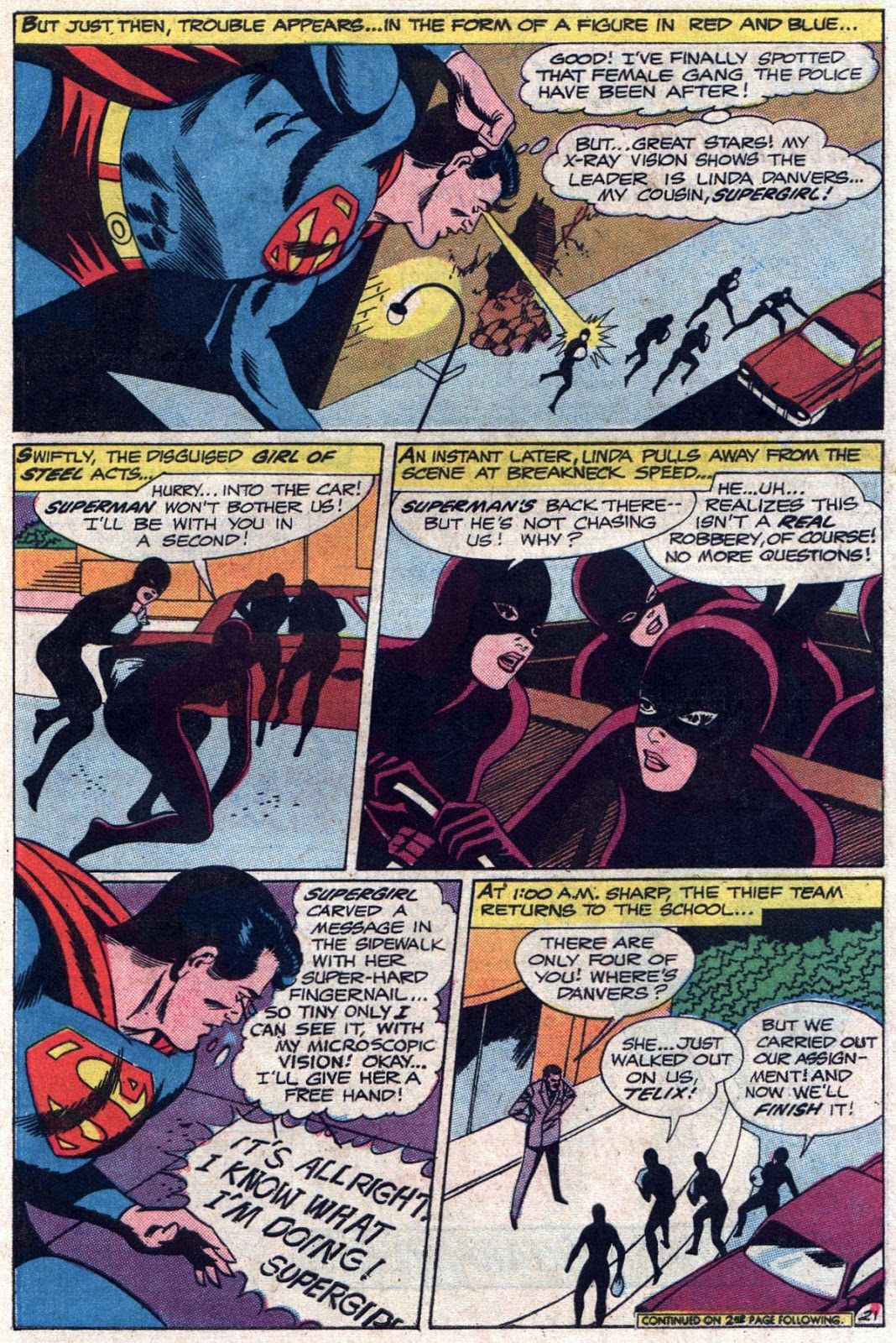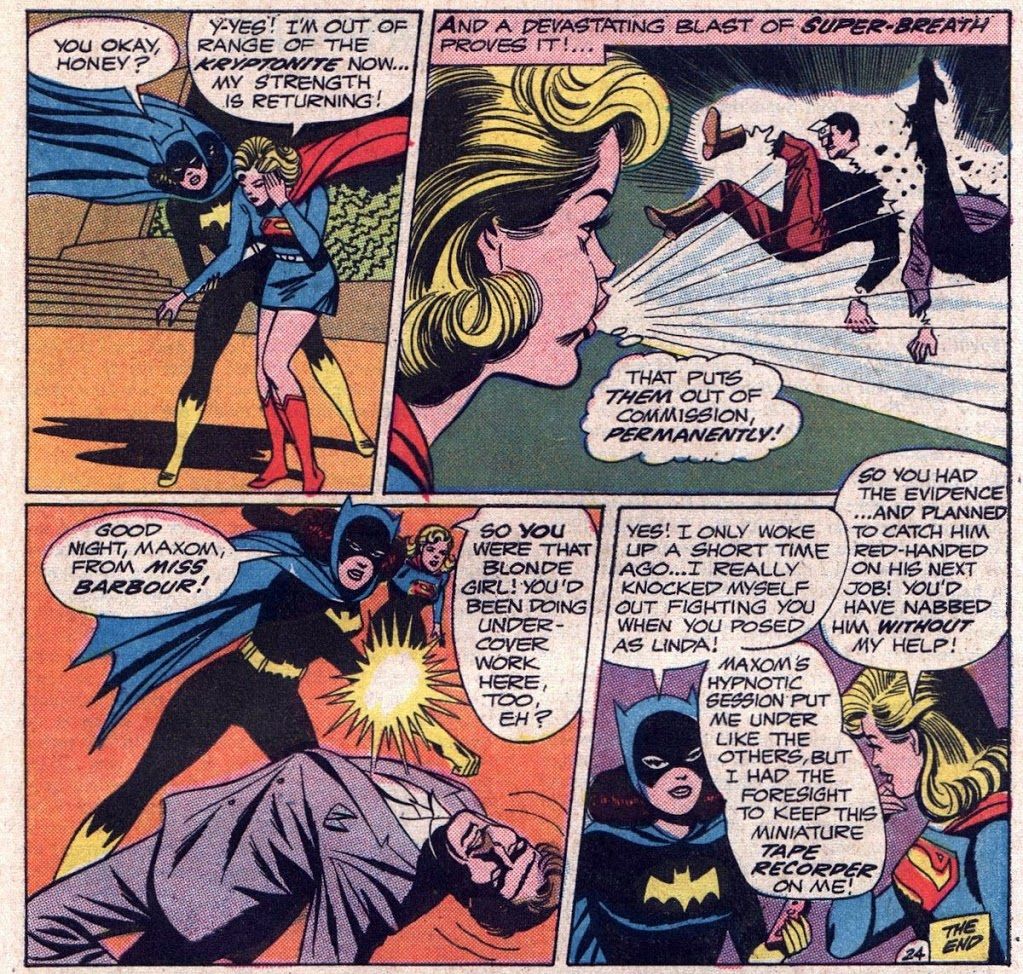This is "Look Back," a brand-new feature that I plan to do for at least all of 2019 and possibly beyond that (and possibly forget about in a week, who knows?). The concept is that every week (I'll probably be skipping the four fifth weeks in the year, but maybe not) of a month, I will spotlight a single issue of a comic book that came out in the past and talk about that issue in terms of a larger scale (like the series overall, etc.). Each week will be a look at a comic book from a different year that came out the same month X amount of years ago. The first week of the month looks at a book that came out this month ten years ago. The second week looks at a book that came out this month 25 years ago. The third week looks at a book that came out this month 50 years ago. The fourth week looks at a book that came out this month 75 years ago.
Today, we look at Supergirl's debut as a lead feature.
It is sometimes difficult to properly judge just how bizarre the late 1960s must have been like for Mort Weisinger. When Weisinger took control of the Superman titles in the late 1940s, they were one of the most popular comic book series in the entire industry. Then the Seduction of the Innocent panic hit and comic book sales plummeted in the mid-1950s and many comic book companies went out of business. However, the Superman titles just kept selling. They weren't necessarily always literally the most popular series of titles, but Superman was often in the top two or three comic books sold throughout the 1950s and well into the 1960s. Then a couple of weird things happened. First off, the Batman TV series briefly made Batman comics more popular than, I dunno, something really popular (bubble gum? soda?) and suddenly, for the first time in his career at National Comics, Mort Weisinger wasn't the top dog. Then, when Batman's sales went back to Earth, Superman regained his spot at DC, but his overall sales were lagging a lot due to Marvel Comics' revamped superhero line of books. I recently wrote about how another title, Green Lantern, tried to adjust to this new style of comics but with the Superman titles, it was even odder since they were THE TOP OF THE INDUSTRY, so it was such an unfamiliar place for Weisinger to be, to have to suddenly explain to others what he was doing. Other DC staffers started to question his decision-making. He would be out of comics by early 1970, but not before he tried some dramatic changes to the Superman line, with one of those decision being to take Supergirl out of her back-up feature in Action Comics (which she had maintained since the late 1950s) and give her the lead feature in Adventure Comics, replacing Superboy and the Legion of Super-Heroes (Superboy had a second series which he continued to maintain after losing his secondary title)...
Page 2: [valnet-url-page page=2 paginated=0 text='What was the new series like?']
To be frank, when the series began, it was essentially just like an expanded standard Supergirl feature from her old back-up days. Cary Bates wrote the story and Win Mortimer and Jack Abel drew it. The story sees Supergirl shocked when some of her classmates at college become thieves...
She learns of a "Sleuth School" that she is pretty sure is the burglary ring and she goes undercover to see if she will be recruited...
"Linda Danvers" obviously impresses, even though there is one other student who is shockingly capable...
"Linda" actually has to defeat this other student to earn a spot in the crime ring...
During their first crime, Supergirl has to warn her cousin not to follow her...
She then uses her super-hypnosis to clear the minds of the other girls and they all turn on the bad guy. He, though, of course has Krypytonite handy. Luckily, the girl from before? That was Batgirl in disguise, trying to take the crime ring down from inside herself!
I wonder how many supervillain plots are just two superheroes secretly pretending to be supervillains?
Supergirl ultimately lost her spot in Adventure Comics, but in good news, it was to getting her own title (complete with her name and everything) in 1973. Sadly, it was canceled pretty quickly and Supergirl found herself in Super Team Family with Lois Lane and Jimmy Olsen.
If you have any suggestions for March (or any other later months) 2009, 1994, 1969 and 1944 comic books for me to spotlight, drop me a line at brianc@cbr.com! Here is the guide, though, for the cover dates of books so that you can make suggestions for books that actually came out in the correct month. For the 75 and 50 year old comics, the cover date is three months ahead of the actual release date (so June for a book that came out in March) while the 25 and 10 year old comics have a cover date that is two months ahead of the actual release date (so May for a book that came out in March). Obviously, it is easier to tell when a book from 10 years ago was released, since there was internet coverage of books back then.

